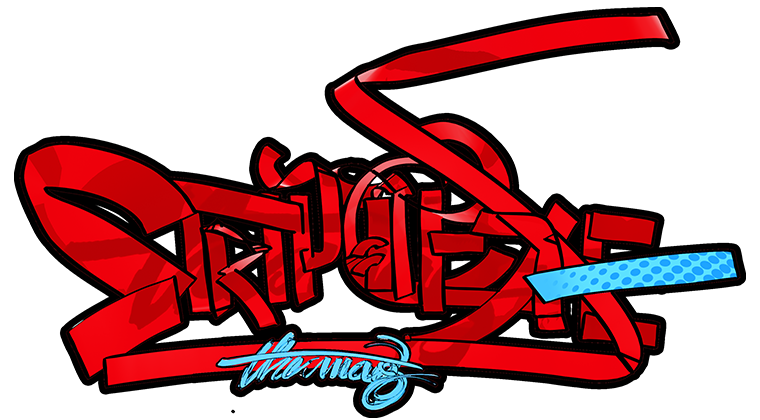“When things get tough…make good art”: A look at David B.’s Epileptic
When Leo Tolstoy spoke of “each unhappy family” being “unhappy in its own way” in his classic Anna Karenina, he might as well have succinctly summed up the Beauchards, David B.’s family portrayed in Epileptic, as they dealt with the illness of their eldest son, Jean- Christophe. Suffering from epilepsy, Jean-Christophe’s affliction is at the centre of this graphic memoir, which heartbreakingly, though without sentimentality, captures the travails of his family who struggle to deal with it. This is the story of not just an epileptic who suffers from a disease which renders him powerless, it is a tale of many epileptics, personified through the Beauchard family, who lack control over their lives due to an illness which fractures their familial bonds. In the process of recounting his own life experiences, David B. essentially undergoes a cathartic process, finally coming to terms with not just his brother’s, but his own demons, and finds a semblance of peace.
![epileptic[1]](http://www.stripteasethemag.com/wp-content/uploads/2013/10/epileptic1.jpg) In the 1960’s, in an era unfolding with some of the most significant cultural developments of the 20th century, the life of a bourgeoisie French family is torn apart when the eldest son, Jean-Christophe, is diagnosed with epilepsy. From then on, it’s s an uphill task for his family as they tackle on the “mountain” of his illness, doing endless rounds of seeking therapeutic relief via allopathy, macrobiotics, acupuncture, homeopathy, spiritualism, magnetism, exorcism, alchemy- you name it, and they exhaust all options, all to no avail. In the midst of this turmoil is young David B., through whose eyes this narrative is brought to life, and for whom the “monster” of his brother’s affliction is a constant, threatening presence, as he fears he may contract it himself. To deal with it, he retreats into his art, sketching battle scenes obsessively in his notebook, metaphorically creating an armour for himself to guard against not only this perceived threat, but against his own brother, whom he finds difficult to empathise with. This is owing to not just the constant anxiety his family has to live with due to unpredictable seizures, but Jean-Christophe’s own lazy and difficult attitude, making everything doubly harder. Alongside, through his sketches, we get to glimpse the Beauchard family history, right back to at least three generations, as the narrator tries to find in his ancestral history some source of the origin of the his brother’s mysterious disease.
In the 1960’s, in an era unfolding with some of the most significant cultural developments of the 20th century, the life of a bourgeoisie French family is torn apart when the eldest son, Jean-Christophe, is diagnosed with epilepsy. From then on, it’s s an uphill task for his family as they tackle on the “mountain” of his illness, doing endless rounds of seeking therapeutic relief via allopathy, macrobiotics, acupuncture, homeopathy, spiritualism, magnetism, exorcism, alchemy- you name it, and they exhaust all options, all to no avail. In the midst of this turmoil is young David B., through whose eyes this narrative is brought to life, and for whom the “monster” of his brother’s affliction is a constant, threatening presence, as he fears he may contract it himself. To deal with it, he retreats into his art, sketching battle scenes obsessively in his notebook, metaphorically creating an armour for himself to guard against not only this perceived threat, but against his own brother, whom he finds difficult to empathise with. This is owing to not just the constant anxiety his family has to live with due to unpredictable seizures, but Jean-Christophe’s own lazy and difficult attitude, making everything doubly harder. Alongside, through his sketches, we get to glimpse the Beauchard family history, right back to at least three generations, as the narrator tries to find in his ancestral history some source of the origin of the his brother’s mysterious disease.
An encounter between the narrator’s mother and an important esoteric French writer of the 60’s, Raymond Abellio, truly encapsulates the notion that lies at the heart of this story- the idea of free will, and how much control human beings have over their lives. Seeking recourse in intellectuals to cure her son, the mother meets Abellio, who bluntly tells her:
“Our free will is very circumscribed…but your son, his illness reduces his free will compared to the average. We’re not free, he’s even less so.”
It’s a telling statement, and by extension of being related to and dealing with him everyday, Jean-Christophe’s entire family is also “even less so” free.
This is a tale of rudderless people left in an ocean of confusion, and dark humour, combined with lushly sketched details of animals, warriors, surreal dreams, ghosts, literary figures and esoteric symbols, make for a compelling attempt at regaining control. In interviews, David B. has spoken of his re-creation of his childhood as an attempt to “forge the weapons that will allow me to be more than a sick man’s brother.” Retreating into his own imagination, he forages for a constructed world where he is a warrior who slains his brother’s “monster”, and with his healthy doses of cynicism, he embarks on a journey to find himself as an artist, while simultaneously being defined by and leaving the clutches of his brother’s torment.
As Neil Gaiman would say, “Sometimes life is hard. Things go wrong..and when things get tough, this is what you should do: Make good art.” David B. seems to have taken a leaf from this piece of advice, and the world is a better place for it.

